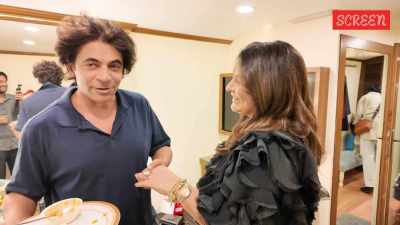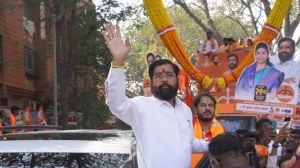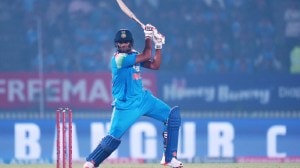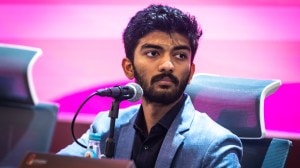The next act
Lascivious, sneering and unmistakably evil - actor Ranjeet fits the bill of a typical Bollywood villain. So it's a little difficult to re...

Lascivious, sneering and unmistakably evil 8211; actor Ranjeet fits the bill of a typical Bollywood villain. So it8217;s a little difficult to relate that popular image with the affable gentleman that he is off screen. In town for his first English play, Hanky Panky, Ranjeet talked about his roles, both in front of the camera and behind it, and his experiment with English theatre.
Once a quintessential villain and now a familiar face on the small screen, with the serials Junoon and Baat Ban Jaye, how did Ranjeet come to act in the bedroom farce at all? 8220;The director of the play, Janak Toprani, approached me for the role. I read the script and thought it was very entertaining, so I thought I would try my hand at it,8221; he says.
Acting in the play 8211; in a classic case of role reversal, he plays a cop in the play 8211; was obviously a different experience altogether. The normally cool Ranjeet seems uncharacteristicaly apprehensive about his debut performance, 8220;I have been called as a chief guest for many functions but in a play, you have to be on stage all the time. I was wondering how I would appear on stage. It was a challenge, acting in the play with 86 pages of script to go through and so many entries and exits,8221; he guffaws.
Despite the kind of roles that he plays these days, Ranjeet admits that it is as a villain that he will be remembered. 8220;I am still surprised by the kind of response I get, especially in the interior regions of the country. People are scared of meeting me. Frankly speaking, I haven8217;t paid much attention to it,8221; he says.The appeal of the roles, however, started to pall after some time. 8220;The villains in my time were portrayed as crude. And I got tired of doing the same monotonous roles. I got fed up and stopped signing films,8221; he laments.
That is when Ranjeet thought of making a film himself and turned producer with Karnaama. 8220;It was my first Hindi film and I even wrote its script. It received good reviews but did not do good business.8221; Undeterred, Ranjeet made his second film, Gajab Tamasha, in which he also acted. 8220;People thought that since I was making it, there would be vulgarity and violence in the film, but they were proved wrong when they saw it,8221; he says.
How does he react to the changing nature of the villain8217;s role? While Ranjeet agrees that there are films where the hero himself seems to have a negative streak, this, he feels, is often the exception rather than the rule. 8220;There will always be villains,8221; he says.
Ranjeet has now begun work on his future project, a Hindi film that he will produce and direct, curiously called AK-47, but that8217;s all he will reveal at the moment. 8220;I am also thinking of making a TV serial with a social subject in mind. I plan to call it Naughty Forties, and it will be about people of this age-group and their life.8221;
Whatever next? 8220;God knows. I have gone the other way, from the big screen to TV, and then to the stage. Maybe I8217;ll land up in Delhi where I first began,8221; he shrugs.
He may be remembered as a negative character, but for Ranjeet, life ahead seems to be positive and full of possibilities.
- 01
- 02
- 03
- 04
- 05































